Think your blurry eyesight is from fatigue caused by too much screen time? It could be a sign of eye disease
Nearly 60 per cent of Singaporeans only seek eye checks when it's too late, according to a survey. But you should be going for eye health screenings to detect cataracts and glaucoma before it’s too late.
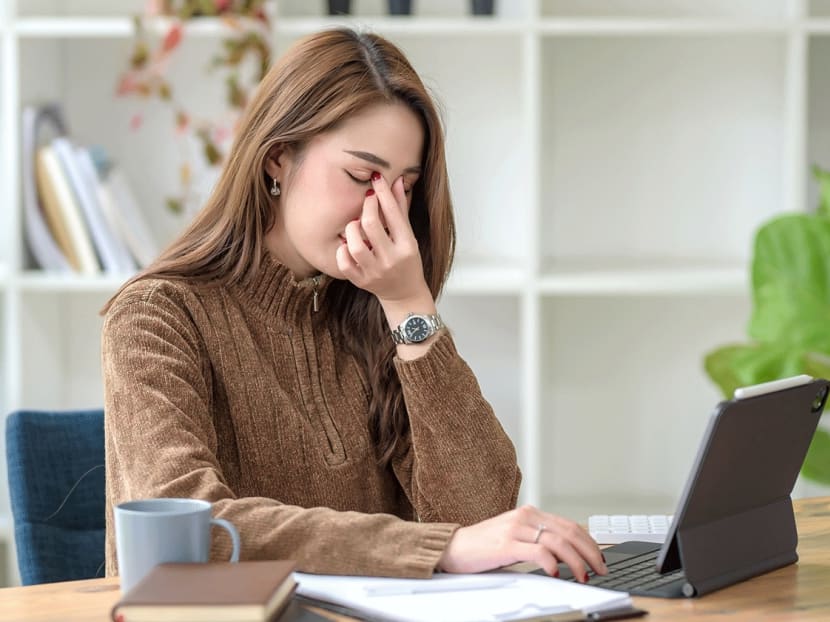
Too much screen time can cause eye fatigue, but your blurry eyesight could be a sign of something else. (Photo: iStock)
Here’s a question: When was the last time you had your eyes checked? And we don’t mean reading the letters on the eye chart for new prescription glasses.
Chances are, you probably don’t see the need to go for regular eye health screenings, according to a recent Johnson & Johnson Vision survey on 1,000 adults in April this year. It revealed that 58 per cent of Singaporeans seek out eye care professionals’ help only when moderate to severe vision impairment affects their daily lives.
The symptoms can include blurred vision, double vision, halos around lights at night, difficulty seeing or driving at night, seeing things in a yellow or brown cast, or colours appearing less vibrant.
Furthermore, more than one in 10 Singaporeans have their eyes assessed every three to four years when you should be doing so once every two years (the recommended frequency can vary based on age and pre-existing medical conditions such as diabetes).
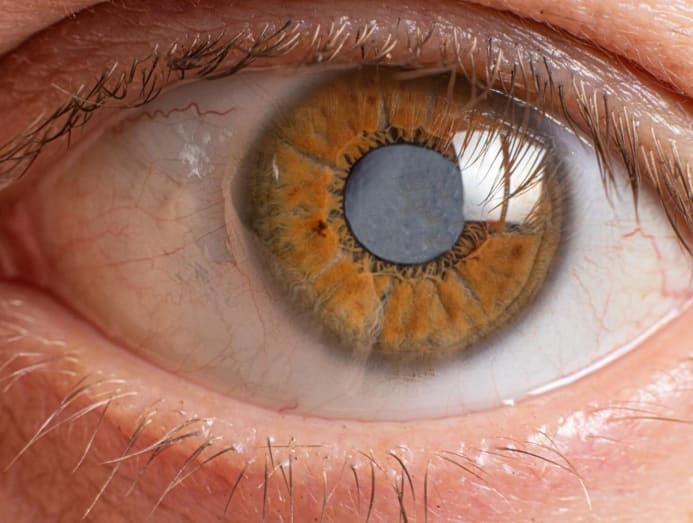
The results didn’t paint a rosy picture, especially for those aged 56 and above: Close to a third of this age group did not get their eyes checked at all. This was not good news as they were at a high risk for developing serious, potentially blinding eye conditions such as cataracts, glaucoma and age-related macular degeneration (AMD).
The younger respondents, aged 30 to 55 years old, didn’t do too well either, according to the survey. They were hesitant to go for eye health screenings as they were more afraid than the elderly of detecting a serious issue (32 per cent versus 23 per cent). The younger ones were also more worried about the risks or possible complications of surgery compared to the elderly.
Cost and greater financial concerns were the other hurdles that stopped more of the younger Singaporeans (60 per cent) from scheduling eye health checks than the older group (46 per cent), according to the survey.
OVERCOMING THE HURDLES TO EYE EXAMINATIONS
The wait-and-see attitude of Singaporeans that the survey revealed coincides with what Dr Ronald Yeoh, an ophthalmologist at Eye and Retina Surgeons, observed of his patients. They typically seek him out only after developing late-stage eye problems – with some even experiencing serious vision impairments or vision loss.
“It’s important to remember that we are able to detect early signs of eye-health-related issues through a comprehensive eye check,” said Dr Yeoh. These issues include eye infections and common eye diseases such as cataracts, glaucoma, diabetic retinopathy and AMD.
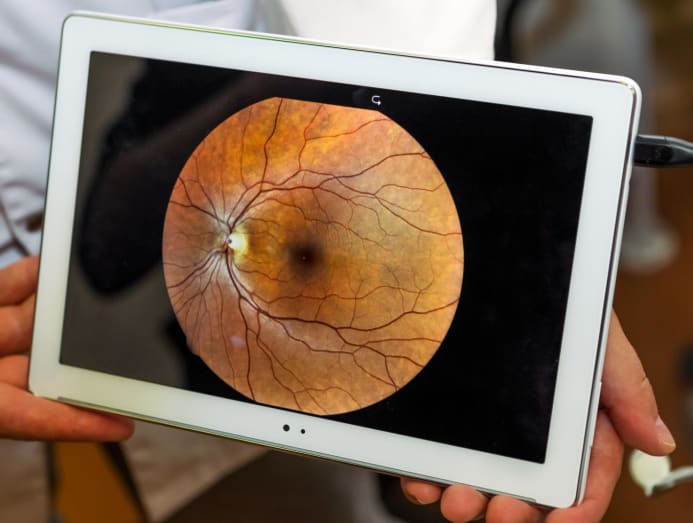
Dr Livia Teo, a senior consultant ophthalmologist with Nobel Eye & Vision Centre, a member of Healthway Medical Group, agreed on the importance of regular eye examinations. “Many people believe that eye checks are only needed if they have problems with their eyesight.
“However, some serious and fairly common eye diseases like glaucoma may not manifest symptoms until a late or advanced stage, where irreversible damage has already occurred,” she said. Diabetics and patients with other conditions are also “prone to developing complications affecting the eyes that may not affect their vision until a late stage”, she added.
Early detection and treatment “can not only slow down a potential problem; in some cases, it can even reverse the progression of eye disease”, said Dr Yeoh.
Take cataracts, for instance: It usually starts to develop in your 40s and 50s with symptoms becoming noticeable by the age of 60 to 70. Nearly 80 per cent of Singapore’s elderly suffer from cloudy eyesight caused by the condition, according to National University Hospital’s website. Age plays a big part as cataracts affect about 64 per cent of people between 60 and 64 years, and 95 per cent of people aged 75 years and older.

The irreversible AMD is another common eye disease that affects the elderly. In Singapore, it is estimated to affect about 27 per cent of our elderly population. “It usually affects people over the age of 50 and is a natural result of ageing,” said Dr Yeoh.
Cost is a very real obstacle as many people have the preconceived notion that eye examinations are expensive, said Dr Yeoh. A session can cost from S$20 to S$80 on average in optical shops, he said, but can be pricier in eye clinics that offer more specialised checks. “However, the underlying factor is to remember that early detection is key, which is why comprehensive eye checks are important,” he said.
The process is also relatively quick (faster than an MRI scan for some), taking up no more than 15 to 20 minutes, said Dr Yeoh.
As for the fear of being diagnosed with something and the pain and treatment that ensue, Dr Yeoh is of the opinion that education is important. “There are many misconceptions that are spread through word-of-mouth such as a bad experience for one person could become a fact for the others. However, what is true for one patient may not necessarily be true for another.”
Furthermore, when it comes to procedures such as cataract surgery, it is one of the most performed surgical procedures in Singapore with an estimated 25,000 to 30,000 surgeries performed locally each year, he said.
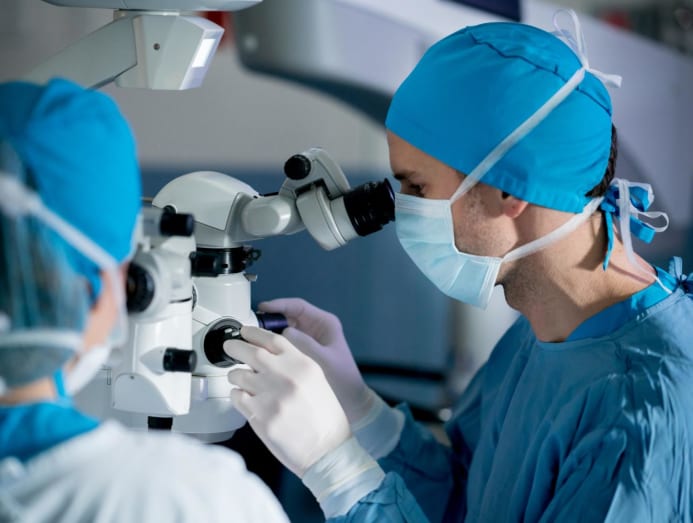
“If Singaporeans – both patients and their caregivers – lack knowledge about the condition and available treatment options, they might miss the opportunity to make the best decision for themselves,” said Dr Yeoh. “For example, many people are unaware that cataract surgery, depending on the type of intraocular lens chosen, can also correct presbyopia or commonly referred to as ‘lao hua yan’ and astigmatism.”
There’s also the self-diagnosing that people do by relying solely on information from the Internet instead of going for a proper eye examination. “It’s never a good starting point as this could spiral into unnecessary details and an overload of information that isn’t even applicable to the person,” said Dr Yeoh.
WHERE TO GET SCREENED
First, it is important to know the difference between a vision screening and a comprehensive eye check, said Dr Yeoh. “Vision screenings are basic eye tests that identify whether one has any problem with vision, such as worsening myopia. However, they cannot test for eye diseases or the underlying causes for any vision problem you may have.”
Second, when it comes to a comprehensive eye check, it involves the evaluations of depth perception, colour vision, eye muscle movements, peripheral or side vision, and the way your pupils respond to light, according to the American Optometric Association.
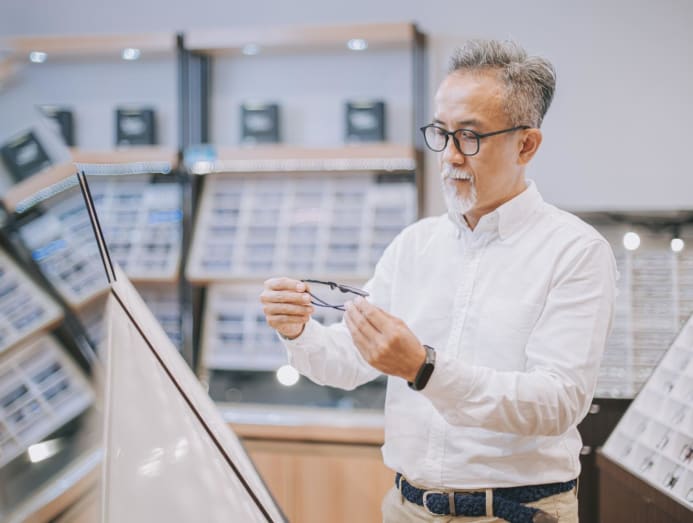
Can the optical shop, where you get your regular supply of disposable contact lenses, assess all that? Some optometrists and opticians at these shops can “offer basic screening for eye diseases as well, and patients may then be referred to an eye specialist if there is any suspicion of eye disease”, said Dr Livia. “The common eye diseases that can be detected at the optical shop include myopia, cataract and glaucoma.”
Speaking of myopia (by 2050, 80 per cent to 90 per cent of all Singaporean adults above 18 years old is projected to be myopic), don’t be so quick to write myopia off as just a sign you need new glasses. “Myopia alone is associated with a higher risk of retinal tears, retinal detachment, floaters, cataract and glaucoma,” said Dr Livia.
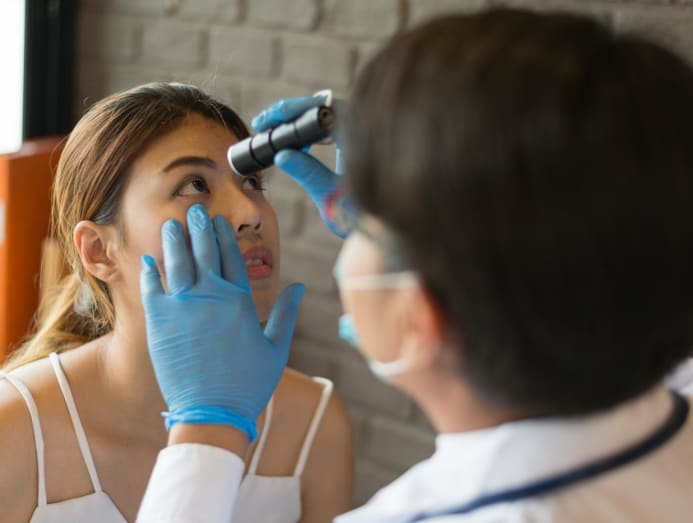
Your family doctor or general practitioner is another avenue for regular eye screenings, she said. However, if you have a family history of eye diseases or if you’re above the age of 40, it is better to consult a specialist for more comprehensive eye examinations, she advised.
HOW OFTEN SHOULD YOU GET SCREENED?
Here are the recommended age-specific eye-screening schedules, according to the experts. Do note that these are recommendations as factors such as your “past eye-health history, medical history, family history of eye disease, and the types of symptoms encountered” will also have to be considered, said Dr Yeoh.
| AGE | FREQUENCY |
| 3 to 19 years old |
Once every one to two years. This is also valid for those getting corrective eyewear or contact lenses fitted for myopia. “Paediatric eye conditions such as misalignment of the eyes, early cataracts, eyelid problems, myopia or even rare tumours of the eyes must be treated early to avoid long-term consequences in vision and health,” said Dr Teo Cheng Rong, a family physician with Healthway Medical Group. |
| 20 to 39 years old |
Once every one to two years. But you may need to screen more frequently if you have a family history of eye disease. Don’t wait till your eyesight is affected before you get your eyes examined. “Increased screen time and the prolonged use of corrective lenses have driven an increase in cases of dry eye syndrome, lens-related infections and other associated eye problems. “It is important to seek medical advice early if symptoms of eye pain, red eyes or even blurring of vision occur. These dangerous signs may indicate an underlying eye infection or serious injury to the eyes,” he said. |
| 40 to 64 years old |
Once every one to two years, if there are no pre-existing issues. “Age-related eye diseases like cataract and glaucoma can begin from the age of 40 years old,” said Dr Livia. By this age, you should undergo at least a baseline comprehensive eye evaluation, said Dr Yeoh. “Post that, refer to your doctor to assess the frequency for follow-up screenings.” |
| 65 years and above |
Yearly, as the incidence of unrecognised ocular disease increases with age. “Many eye conditions such as retinal problems, cataracts, age-related macular degeneration and blockage of blood vessels can plague the ageing adults,” said Dr Cheng Rong. “Diabetic patients should undergo annual dilated eye examinations,” he added, preferably with a regular doctor. |






